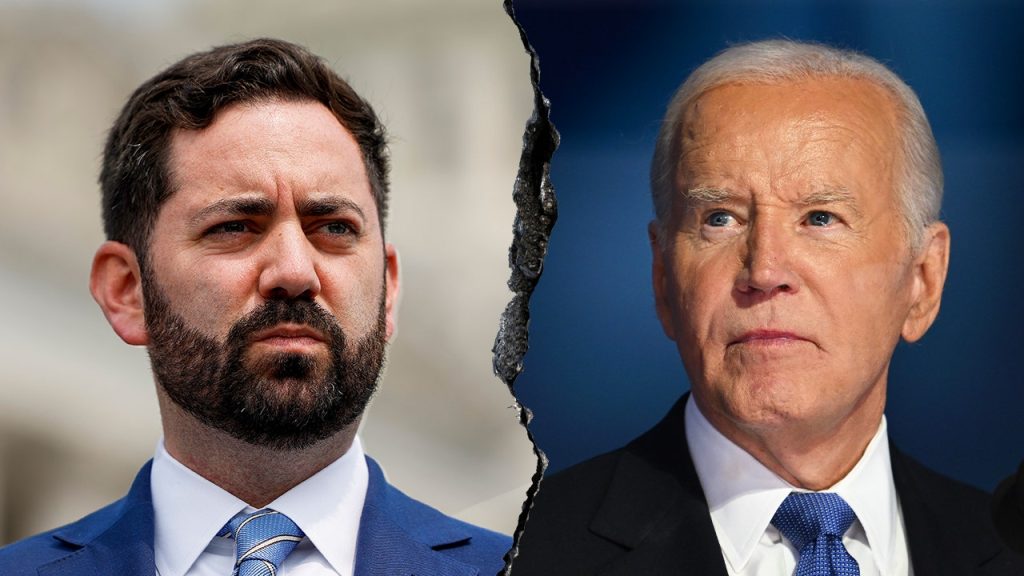Rep. Mike Lawler (R-NY), a member of the House Foreign Affairs Committee, criticizes the Biden administration’s foreign policy, arguing that it has exacerbated global conflicts and left the world in a more precarious state than it inherited. He points to the withdrawal from Afghanistan as a pivotal moment that triggered a series of destabilizing events. Lawler contends that the withdrawal emboldened adversaries and contributed to the Russian invasion of Ukraine, the terrorist attack in Israel, heightened tensions with China in the Indo-Pacific, and the illicit oil trade between China and Iran, which he alleges funds terrorism. He believes the Biden administration’s inability to effectively address these challenges highlights its weakness on the global stage, contrasting it with the perceived strength and decisiveness of the previous Trump administration.
Lawler’s critique centers on the belief that the Biden administration’s foreign policy has been reactive and insufficient to deter adversaries. He contrasts this with what he sees as the proactive and forceful approach of the Trump administration, suggesting that Trump’s willingness to act projected strength and discouraged hostile actions. He anticipates a significant shift in foreign policy under a potential second Trump term, predicting a more assertive stance towards adversaries and a greater focus on resolving existing conflicts. This shift, he believes, will be driven by Trump’s perceived strength and decisiveness. Lawler’s perspective aligns with a broader Republican critique of the Biden administration’s foreign policy, emphasizing the need for a stronger American presence on the world stage.
The congressman specifically cites the Afghanistan withdrawal as the catalyst for this decline in global stability. He argues that the chaotic nature of the withdrawal and the subsequent Taliban takeover signaled weakness to America’s adversaries, leading to a cascade of negative consequences. The Russian invasion of Ukraine, he suggests, was emboldened by the perceived American retreat from Afghanistan, while the rise in terrorist activity and the escalating tensions with China are also linked to this pivotal event. Lawler paints a picture of a world teetering on the brink of major conflict, a situation he attributes directly to the Biden administration’s foreign policy decisions. He believes that the administration’s approach has weakened America’s standing in the world and created a vacuum for adversaries to exploit.
Looking ahead to the next Congress, Lawler anticipates a significant shift in the House Foreign Affairs Committee’s priorities under the anticipated leadership of Rep. Brian Mast (R-FL). He expects a focus on reauthorizing State Department operations, scrutinizing the agency’s programs, and overseeing how its funds are utilized. This focus on oversight reflects a broader Republican desire to exert greater control over the State Department’s activities and ensure alignment with their foreign policy objectives. Lawler’s comments suggest a belief that the State Department, under the Biden administration, has not been effectively pursuing American interests and requires significant reform. This anticipated shift in focus signals a potential for increased tension between the executive and legislative branches on foreign policy matters.
Lawler expresses confidence that a potential second Trump administration would bring a more robust and decisive approach to foreign policy. He contrasts Trump’s perceived strength and willingness to act with Biden’s perceived weakness and hesitancy, arguing that Trump’s approach deterred adversaries and fostered greater global stability. He suggests that Trump’s foreign policy would prioritize American interests and project strength on the world stage. He predicts that a Trump administration would be less tolerant of adversaries and more willing to use force to achieve its objectives. This perspective reflects a broader Republican view that a stronger military and a more assertive foreign policy are essential for maintaining American global leadership.
In summary, Lawler’s critique of the Biden administration’s foreign policy centers on the belief that it has emboldened adversaries, destabilized key regions, and weakened America’s global standing. He contrasts this with the perceived strength and effectiveness of the Trump administration’s foreign policy, predicting a significant shift towards a more assertive and decisive approach under a potential second Trump term. He sees the Afghanistan withdrawal as a critical turning point that ushered in a period of heightened global instability, and he anticipates a renewed focus on oversight and reform of the State Department in the next Congress. His perspective reflects a broader Republican view that a strong military, a willingness to use force, and an assertive foreign policy are crucial for protecting American interests and maintaining global order. He envisions a future foreign policy under Trump that prioritizes American strength and actively confronts adversaries.

